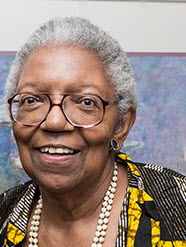Not all White people are racist. But all White people benefit from racism. That truth must be faced, not avoided.
 Racism in America is not a matter of personal cruelty. It’s structural, systemic, and generational. And yet, conversations about racism often stall at the doorstep of individual intent. “I’m not racist,” many White people insist, as though that absolves them. But racism doesn’t require intent. It requires infrastructure—and that infrastructure is everywhere. Built into schools, courts, neighborhoods, and narratives. Protected by law and normalized by culture.
Racism in America is not a matter of personal cruelty. It’s structural, systemic, and generational. And yet, conversations about racism often stall at the doorstep of individual intent. “I’m not racist,” many White people insist, as though that absolves them. But racism doesn’t require intent. It requires infrastructure—and that infrastructure is everywhere. Built into schools, courts, neighborhoods, and narratives. Protected by law and normalized by culture.
Here's the uncomfortable truth: not all White people act in racist ways, but all White people benefit from systems built on racism. Whether they acknowledge it or not. Whether they want to or not.
This isn't about shame. It's about responsibility. It's about understanding that benefit doesn't require belief—and complicity doesn't require cruelty. The sooner we acknowledge our privilege, the sooner we can actively participate in dismantling racism.
The Structure Beneath the Silence
America was constructed through Indigenous genocide, African enslavement, Asian exclusion, and Mexican dispossession. These are not just historical facts—they are the foundation of our modern systems. Whiteness was created as a political tool to consolidate power, and it has delivered ever since.
White people today inherit the dividends of that system. They are more likely to own homes in neighborhoods never redlined. More likely to attend well-funded public schools. More likely to inherit family wealth built on land and labor stolen from others. More likely to be treated fairly by police and leniently by courts. More likely to be presumed competent, innocent, and human.
They are also more likely to be unaware of these advantages—because White supremacy is designed to be invisible to those who benefit from it. That invisibility is part of the power.
The Many Faces of Privilege
Whiteness delivers its benefits across four key domains: material, institutional, cultural, and psychological.
Materially, White families enjoy generational wealth built through policies like the GI Bill and FHA home loans that were systematically denied to Black families.
Institutionally, White students are suspended less often than Black students for the same behaviors. White workers are promoted more quickly. White neighborhoods receive more investment.
Culturally, Whiteness is the default in media, curriculum, fashion, and leadership. It defines what is considered normal, professional, beautiful, and American.
Psychologically, White people don’t carry the daily burden of racial surveillance. They aren’t assumed dangerous, deviant, or disposable simply for existing.
And perhaps most importantly, White people are granted the luxury of not having to think about race. That, too, is a privilege. Because for people of color, race is a constant negotiation, a survival skill, and an open wound.
Whiteness Isn't Neutral
Whiteness is not just a racial identity—it is a system of advantage. It shapes perception, behavior, and belief. It conditions White people to see themselves as individuals and people of color as "others." It rewards them for conformity and punishes them for dissent. It reinforces fragility, superiority, and entitlement.
Even well-meaning White people are shaped by this system. They may oppose racism in theory but still uphold it in practice—by staying silent, avoiding discomfort, or centering their own feelings when confronted. That's not allyship. That's self-preservation.
The Real Work Begins With Truth
Naming these truths is not divisive—it's necessary. Justice requires reckoning, and reckoning requires honesty.
White people do not have to be villains to be beneficiaries. But they do have to make a choice: remain passive beneficiaries of inequality or become active participants in dismantling it.
That means listening more than speaking, risking comfort, and redistributing power. It means rejecting the seductive myth that being 'not racist' is enough. In a system built on racism, neutrality is complicity. The future of racial justice depends on our active participation.
The future of racial justice does not rest solely on those harmed by racism. It also depends on those who benefit from it being willing to give something up—comfort, silence, power—and commit to building something new. It's about collective action, about standing together to dismantle the structures that perpetuate racism.
Because until we tell the truth about what Whiteness is and how it works, nothing changes. Not really.
Professor Vernellia Randall is a retired law professor, racial justice scholar, and founder of Racism.org. For over 30 years, she taught law and advocated for civil rights, health equity, and the dismantling of systemic racism. Her work centers on exposing structural inequality and building strategies for collective liberation


